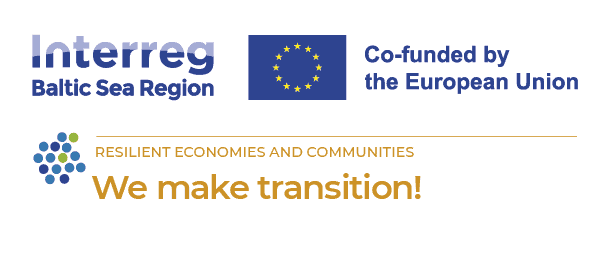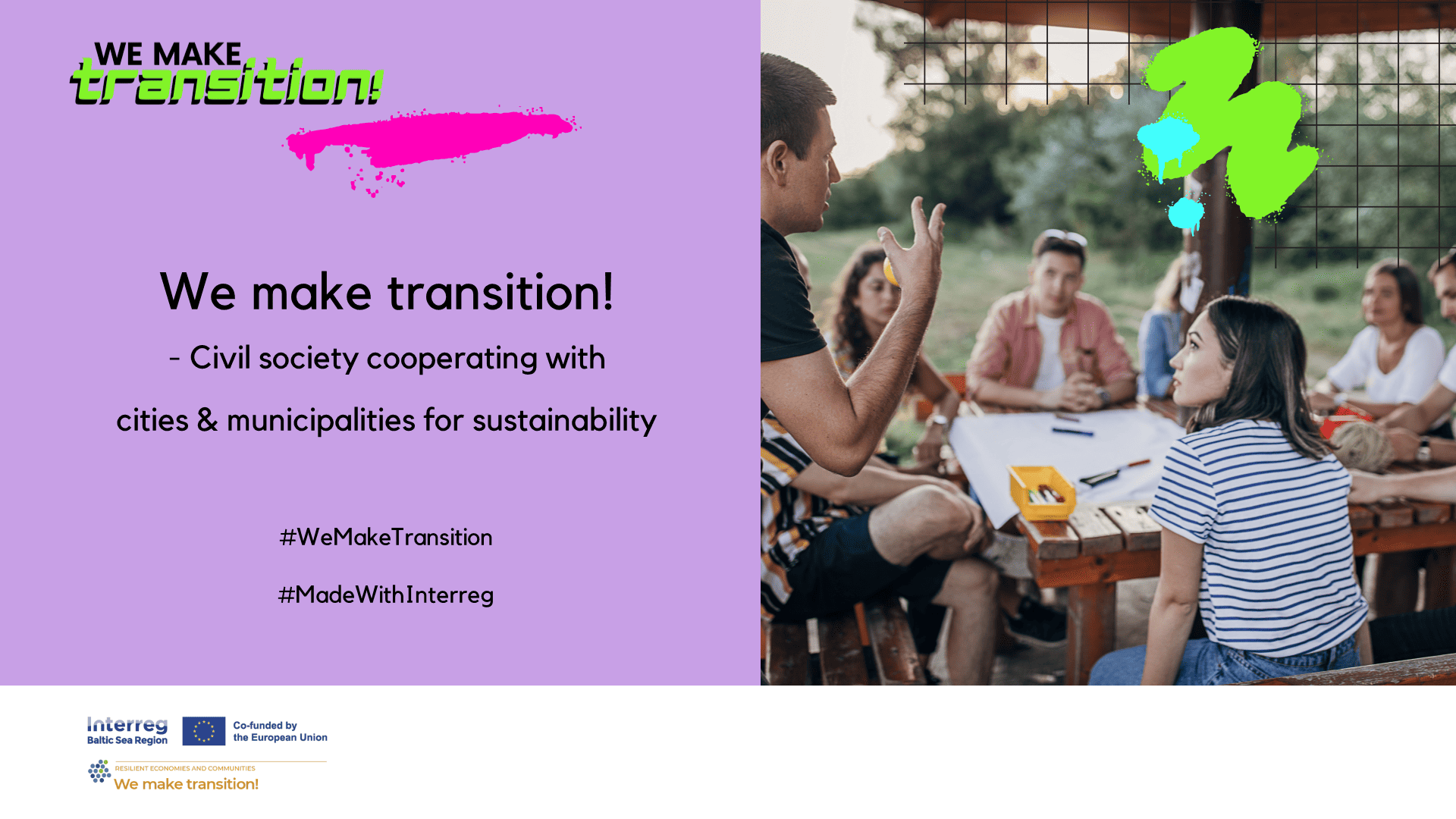
We make transition! pilot process
22 February 2024
We make transition! -project aims to enhance cooperation between local authorities, various civil society actors, entrepreneurs and other sustainability stakeholders to co-create solutions to eco-social sustainability. Partners from six countries cooperate with altogether 12 cities and municipalities to organise visioning and co-creation processes that include the following steps:
- Stakeholder and system analysis: focus group discussions on sustainability topics
- Framing the challenge(s)
- Co-creation of BSR vision of sustainable life by transnational group of change agents
- Organising series of three local workshops; 1) joint visioning, 2) pathways, 3) concrete solutions and transition agenda
- Implementing initiatives and solutions to start pathway to the local vision.
The process is organised in 12 cities and municipalities focusing on different topics. The following topics have been selected for the local transition arena workshops based on the results of focus group discussions and local needs:
| 1. Municipality of Hämeenkyrö, Finland | Sustainable agriculture |
| 2. City of Tampere, Finland | Biodiversity |
| 3. City of Gdynia, Poland | Active citizens for green urban areas |
| 4. Municipalities of Tartu County, Estonia | Circular economy |
| 5. Municipality of Lääne Harju, Estonia | Circular food systems |
| 6. Helsinki-Uusimaa Region, Finland | Circular Transition: sharing economy and better use of existing built environment and spaces. |
| 7. Municipality of Kimitoön, Finland | Sustainable future and the youth |
| 8. City of Uusikaupunki, Finland | Biodiversity |
| 9. Municipality of Namsos and Overhalla, Norway | Recycling building materials |
| 10. City of Trondheim, Norway | Food and textiles, sustainable consumption |
| 11. City of Bremen, Germany | Sustainable nutrition and food |
| 12. Municipality of Cēsis, Latvia | Co-creating Bioregion: Organic food promotion |
The transition arena in this project consist of three workshops: the first co-creates a joint vision related to the topic, the second identifies pathways to the vision and third co-creates concrete actions. In the end a transition agenda taking forward the actions and initiatives naming responsibilities will be agreed.
Interactive map showing pilot locations. Use the arrow keys to move the map view and the zoom controls to zoom in or out. Press the Tab key to navigate between markers. Press Enter or click a marker to view pilot project details.







